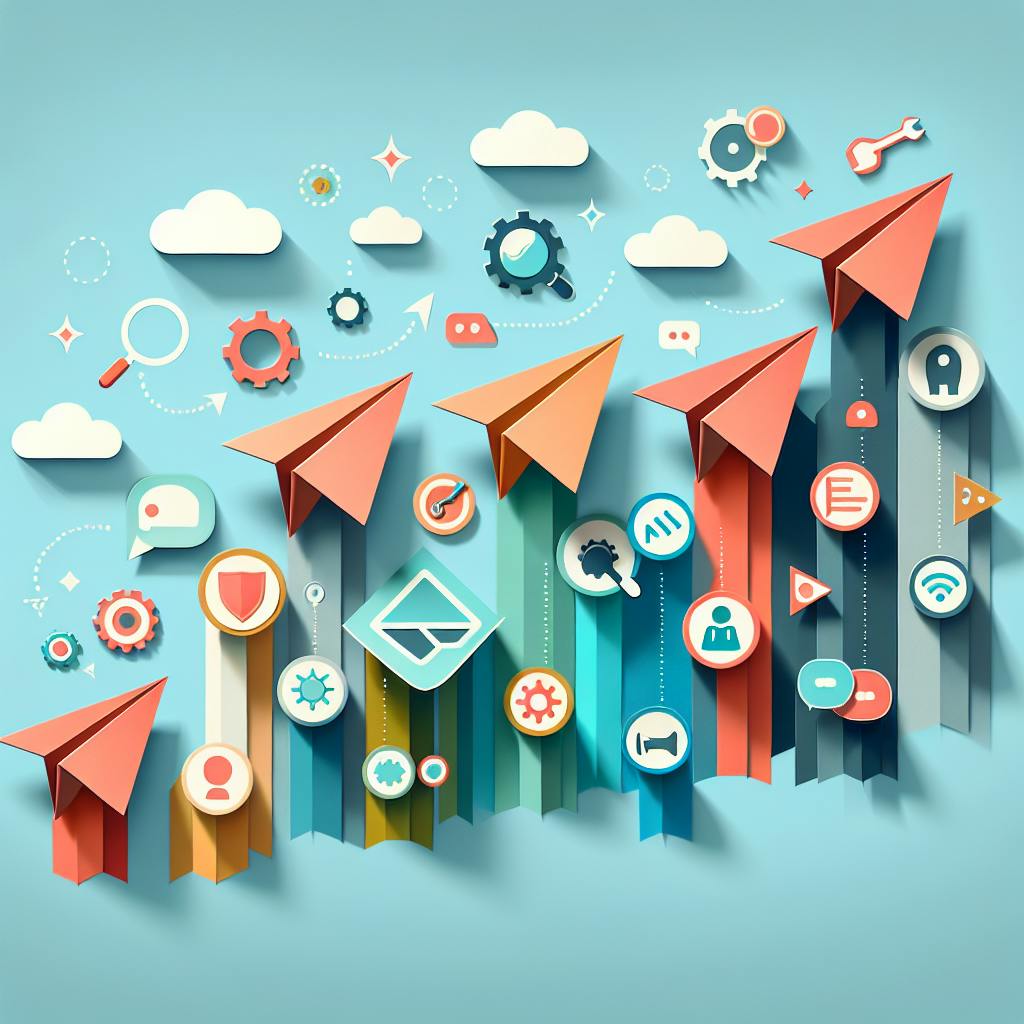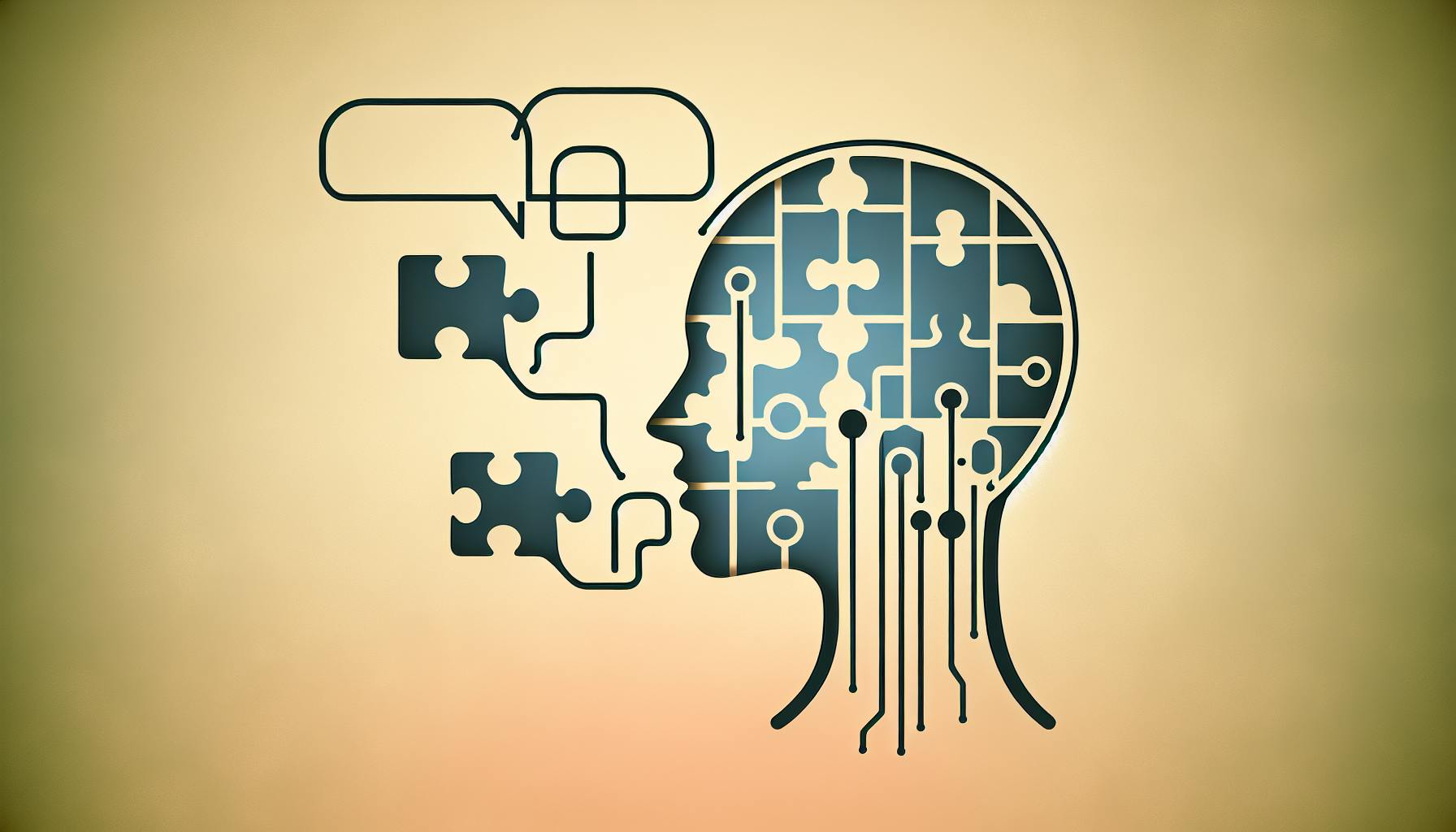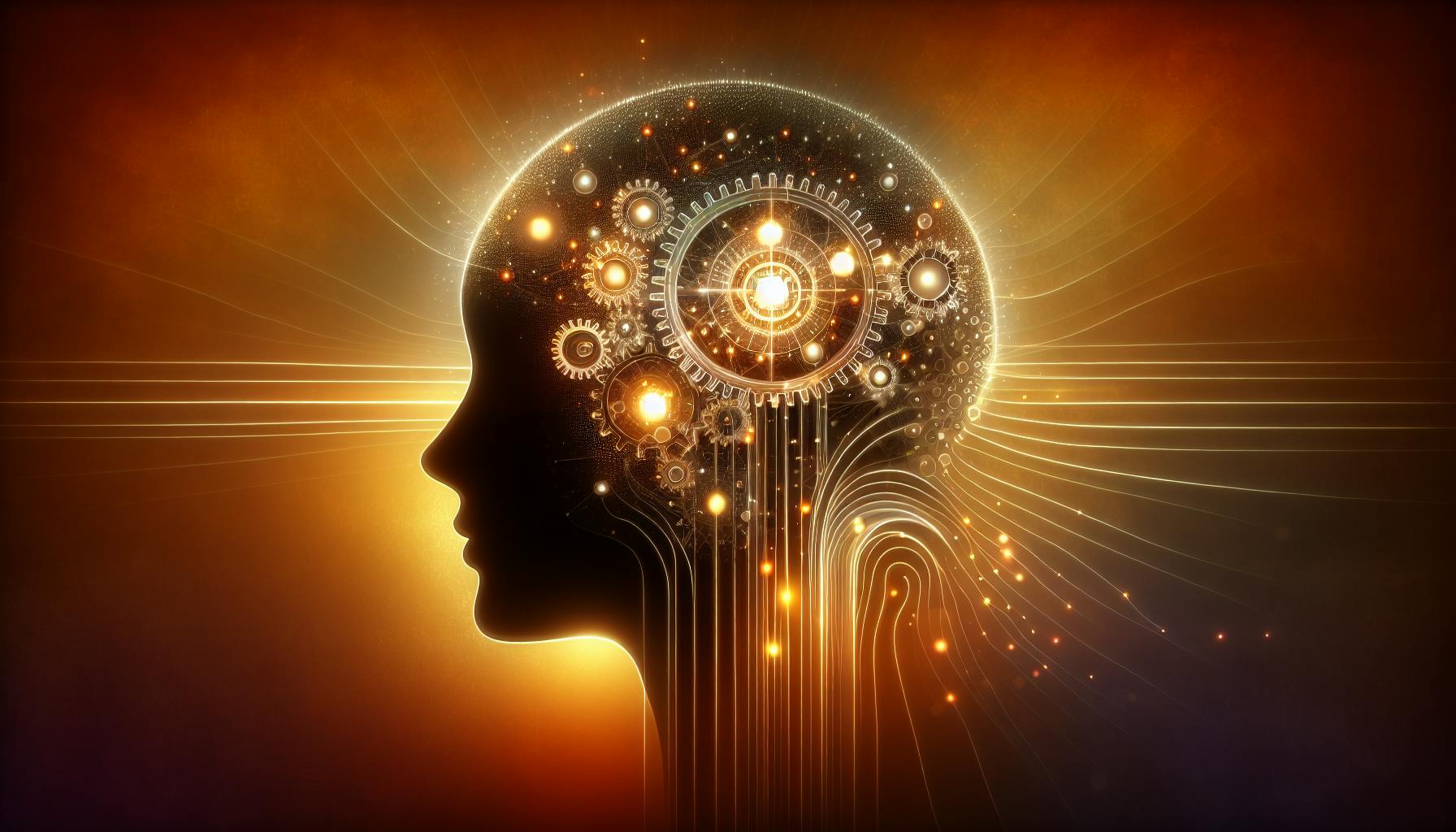Introduction
ChatGPT has taken the world by storm as a powerful AI chatbot assistant capable of generating remarkably human-like conversations. Developed by OpenAI and launched in November 2022, ChatGPT demonstrates advanced natural language processing that enables realistic dialogues, text comprehension, and content generation.
The goal of this article is to explore the diverse capabilities and real-world use cases of ChatGPT across industries. By highlighting examples that showcase ChatGPT's skills as an AI assistant, we can gain valuable insights into its current abilities and future potentials as these large language models continue rapidly evolving.
Resources like All GPTs Directory offer a great way to find specialized GPT models fine-tuned for specific uses that can further enhance ChatGPT experiences. As we'll see through the various examples below, ChatGPT is already transforming how businesses, educators, healthcare providers, lawyers, creators, engineers and more can leverage AI to boost productivity, efficiency, and innovation.
In the sections below, we'll take a closer look at major use cases and applications of ChatGPT in key industries and fields.
Business Use Cases
ChatGPT has proven adept at a range of business functions from customer service to financial reporting. Its skills allow businesses to work smarter by automating repetitive tasks and generating data-driven insights.
Marketing
-
Creating dynamic ad copy tailored to target audiences - ChatGPT can analyze consumer data and interests to generate marketing messages adapted to specific demographics and buyer personas.
-
Generating landing page content based on products/services - It can craft optimized page copy highlighting features and benefits of offerings to boost conversions.
-
Producing marketing emails and newsletters at scale - Personalized email content can be created at scale by feeding customer data to ChatGPT.
-
Analyzing customer data to optimize digital marketing campaigns - ChatGPT can process customer analytics to derive actionable recommendations for PPC, social ads, landing pages, email campaigns, and more.
-
Conducting market research and compiling competitor analysis - It can rapidly synthesize information from various sources into comprehensive reports on market landscapes, trends, and competitors.
Sales
-
Qualifying leads and determining customer needs from interactions - ChatGPT can analyze sales conversations to identify prospects ready for proposals.
-
Recommending products/services tailored to individual customers - Based on customer data, it can suggest the best offerings to meet their needs and priorities.
-
Generating sales proposals, pitches, and presentations - ChatGPT can craft customized proposals and sales decks outlining solutions for prospects.
-
Analyzing sales funnel data to identify opportunities - It can process CRM data to pinpoint areas for optimization across the funnel.
-
Forecasting revenue based on historical performance - ChatGPT can apply forecasting models to predict future revenue trajectories.
Customer Support
-
Responding to common customer queries and complaints - It can be trained on company knowledge bases to resolve routine support issues.
-
Analyzing support tickets to identify frequent issues - Processing volumes of support tickets allows ChatGPT to highlight common problems.
-
Generating FAQs and troubleshooting guides for common problems - By identifying frequent complaints and issues, it can draft FAQ pages and guides.
-
Upselling and cross-selling based on customer data - ChatGPT can analyze past purchases and activity to recommend add-ons and complementary products.
-
Route complex issues to human agents - It can flag uncommon or escalated issues to transfer to the right support reps.
-
Creating knowledge base articles on frequently asked topics - ChatGPT can auto-generate articles explaining common questions and issues to populate knowledge bases.
-
Analyzing call transcripts to uncover pain points - It can process call logs to derive insights on customer frustrations and opportunities.
Finance & Accounting
-
Processing invoices and receipts to extract key data - ChatGPT can review documents to pull important details like amounts, vendors, line items into accounting software.
-
Classifying expenses and generating financial reports - It can auto-categorize costs and create reports on spending, budgets, profitability, and more.
-
Forecasting budgets and predicting future expenses - Based on historical finances, ChatGPT can build forecasting models to estimate future budget needs.
-
Automating payroll tasks like time tracking - Employees can describe completed tasks in natural language for ChatGPT to log hours.
-
Analyzing financial documents to check for discrepancies - By comparing documents like invoices and bank statements, ChatGPT can flag accounting inaccuracies.
Human Resources
-
Screening resumes and scheduling interviews with candidates - It can review applicant resumes and set up interview times for qualified candidates.
-
Answering common HR-related questions from employees - ChatGPT can become an always-available resource for employees to get quick answers to HR questions.
-
Generating job descriptions tailored to open positions - It can craft engaging, optimized job posts that attract qualified applicants.
-
Analyzing employee feedback and satisfaction data - ChatGPT can process survey results to derive insights around improving culture and retention.
-
Creating personalized onboarding checklists - Based on a new hire's role and background, it can generate customized onboarding to-do lists and training.
Education Use Cases
ChatGPT has exciting applications in education and e-learning for students and teachers. Its ability to simplify complex topics makes it an ideal virtual tutor and teaching assistant.
-
Tutoring students and answering academic questions - It can explain concepts across grade levels and subjects in a student-friendly manner.
-
Providing feedback on essays, reports, and assignments - ChatGPT can analyze student work to offer improvement suggestions on structure, arguments, grammar, and more. For example, it may point out places where an essay's thesis could be strengthened with more supporting evidence.
-
Generating quizzes and interactive study content - Educators can have it automatically create quizzes, flashcards, and other engaging study materials on course topics.
-
Personalizing lessons and study plans based on student needs - ChatGPT can tailor teaching style, pace, and content to individual students' knowledge levels and learning goals.
-
Analyzing areas of weakness and suggesting supplemental resources - By identifying knowledge gaps, it can recommend specific lessons, tutorials, and practice exercises to strengthen weak subjects.
Personalized Learning
-
Adapting teaching style and pace to individual learners - ChatGPT can gauge student mastery through natural conversation to serve content suited to their abilities.
-
Gauging student mastery of concepts through interactions - Its dialogues allow for interactive assessment of understanding across topics.
-
Designing customized study plans tailored to knowledge gaps - Analyzing weak areas allows ChatGPT to create personalized lesson plans that target those topics.
-
Recommending specific lessons, courses, tools based on strengths/weaknesses - It can suggest the ideal resources to fill individual students' knowledge gaps and support their strengths.
-
Providing more support in struggling subjects - For subjects a student finds difficult, ChatGPT can offer greater explanation, examples, and practice.
Virtual Teaching Assistant
-
Answering student questions about course material - It can field queries on concepts, assignments, and lectures just like a human TA.
-
Explaining complex concepts in simpler terms - ChatGPT excels at breaking down difficult material into easily digestible examples and analogies.
-
Identifying knowledge gaps and misconceptions - Conversations allow it to pinpoint areas students are struggling with and clarify misunderstandings.
-
Suggesting areas of improvement in essays/assignments - It can review student work and outline specific ways to improve arguments, writing, grammar, and more.
-
Finding relevant study content and supplemental materials - Based on course topics, ChatGPT can locate videos, quizzes, articles that enrich lessons.
Automated Grading & Feedback
-
Evaluating written work and providing personalized feedback - It can analyze student writing assignments across criteria to generate actionable improvement suggestions.
-
Checking assignments for completion and plagiarism issues - ChatGPT can flag incomplete sections or passages that may require citation.
-
Generating scores and rubrics to grade performance - It can accurately apply grading rubrics to objectively score student work across dimensions.
-
Highlighting excellent work and areas needing improvement - When grading assignments, it can call out strengths for students to build on as well as areas to improve.
-
Comparing to exemplary samples to illustrate gaps - ChatGPT can contrast student work against model samples to demonstrate the differences.
Adaptive Quizzing
-
Creating personalized quizzes tailored to student progress - It can generate quizzes focused on each student's recent trouble areas and knowledge gaps.
-
Adjusting difficulty based on correct/incorrect responses - ChatGPT can modulate quiz difficulty in real-time based on students' answers to provide an optimal challenge level.
-
Providing tailored explanations for wrong answers - It can analyze incorrect responses to offer guided explanations and examples so students better grasp concepts.
-
Identifying weak areas and suggesting focused review - Based on students' quiz performance, ChatGPT can highlight subjects to prioritize studying.
-
Comparing scores to highlight growth opportunities - ChatGPT can chart students' quiz progress over time to illustrate improvement areas.
Chat-Based Tutoring
-
Answering homework questions across subjects/grade levels - Its conversational nature makes ChatGPT ideal for fielding homework questions in all core subjects.
-
Breaking down complex concepts using visual aids - It can generate diagrams, graphs, and other visuals to reinforce explanations of difficult topics.
-
Providing study tips and techniques tailored to learning style - ChatGPT can recommend personalized study methods based on how each student learns best.
-
Suggesting supplemental resources to strengthen weaknesses - To shore up knowledge gaps, it can point students to helpful online courses, videos, practice tests and more.
-
Practicing sample questions and past exam papers - ChatGPT is skilled at providing guided practice using real example questions from past exams and standardized tests.
Healthcare Use Cases
ChatGPT presents promising applications in healthcare, from patient education to assisting overburdened providers. Its conversational nature and ability to simplify complex topics makes it an ideal virtual health assistant.
-
Answering common patient health questions - It can provide reliable responses to basic questions about symptoms, conditions, medications, tests and more.
-
Recommending lifestyle changes and preventative care - Based on health profiles, ChatGPT can suggest personalized tips for nutrition, exercise, sleep hygiene and preventative wellness.
-
Explaining conditions, treatments, medications simply - It excels at breaking down complicated health topics into easily digestible language for patients.
-
Generating patient education materials and instructions - Healthcare providers can have ChatGPT automatically create pamphlets, after-visit summaries, and other materials explaining conditions, procedures, medications, and post-discharge care in simple terms. For example, it could generate a diabetes information pamphlet outlining treatment options.
-
Scheduling appointments and telehealth sessions - It can manage appointment booking and send reminders while freeing up staff.
Virtual Health Assistant
-
Providing personalized health recommendations - ChatGPT can offer tailored suggestions on lifestyle, routine medical care, and preventative screenings based on individual health profiles.
-
Answering questions about symptoms, conditions, treatments - Its medical knowledge allows it to address common patient questions and point them to reliable resources for learning more.
-
Explaining test results and next steps in simple terms - ChatGPT can interpret lab results, imaging studies, and other tests to clearly explain the findings and appropriate next actions to patients.
-
Suggesting reputable health resources for more information - When asked about health topics, it can point patients to credible websites, articles, and patient advocacy groups for further learning.
-
Scheduling appointments and telehealth consultations - ChatGPT enables easy self-service appointment booking, rescheduling when needed, and scheduling televisits.
Patient Education
-
Generating instructional materials on managing conditions - It can create pamphlets, booklets, infographics and other tools that educate patients on chronic disease self-management.
-
Creating customized care plans for patients - ChatGPT can develop tailored care plans outlining diet, exercise, medication routines specific to patients' lifestyles and needs.
-
Explaining aftercare instructions in easy-to-understand language - Post-discharge, it can summarize aftercare directions in simple, actionable steps patients can easily follow.
-
Sending reminders for medications, appointments, checkups - ChatGPT can act as a virtual assistant that reminds patients about important health tasks and events.
-
Recommending lifestyle changes and preventative care - It can suggest healthy habit changes tailored to individuals' risks and needs, like improving diet, increasing exercise, or scheduling cancer screenings.
Medical Content Creation
-
Producing patient-friendly explanations of health topics - ChatGPT excels at taking complex health information and distilling it into easily digestible overviews for patients.
-
Generating triage questionnaires and symptom checkers - It can quickly produce scripts for nurse triage lines, interactive voice response systems, and online symptom checkers to guide patients on next steps.
-
Creating FAQs for common medical questions - Healthcare sites can have ChatGPT generate entire libraries of patient FAQs on demand to address frequent health inquiries.
-
Summarizing health research into plain language - It can simplify medical studies and health news into layman explanations digestible for non-experts.
-
Drafting social media posts and articles about health - ChatGPT can compose informative social media posts or blog articles covering various wellness topics to engage patients.
Preliminary Diagnosis
-
Analyzing patient health data for red flags - It can review health records to spot potential serious issues requiring urgent care.
-
Suggesting possible diagnoses based on symptoms - ChatGPT can provide probable differential diagnoses based on symptom history for provider review.
-
Determining if in-person exam is needed - It can help triage whether symptoms likely require an in-clinic exam versus just over-the-phone medical guidance.
-
Recommending relevant specialists as next steps - Based on suspected conditions, ChatGPT can point patients to appropriate specialists for follow-up.
-
Highlighting urgent symptoms requiring immediate care - It can identify symptoms like chest pain that require directing patients to ERs versus waiting for appointments.
Healthcare Administration
-
Managing appointment booking and scheduling - ChatGPT enables efficient self-service appointment scheduling to reduce administrative workload.
-
Processing insurance claims and eligibility checks - It can rapidly handle tasks like validating coverage and submitting accurate claims to payers.
-
Generating bills, invoices, receipts for services - ChatGPT can instantly produce needed billing documents and speed up payment collection.
-
Compiling patient records and health history - It can assemble comprehensive health profiles from various sources into consolidated electronic records.
-
Performing medical coding and billing procedures - ChatGPT can accurately assign medical codes for conditions, procedures, and prescriptions to facilitate insurance claims.
Legal Use Cases
With capabilities ranging from contract review to discovery assistance, ChatGPT proves useful across a wide breadth of legal applications.
-
Analyzing contracts and highlighting key clauses - It can quickly parse agreements to call out important terms, obligations, and exceptions for review by lawyers.
-
Generating legal documents like NDAs tailored to specifics - By inputting case parameters, ChatGPT can create customized contractual agreements adhering to legal standards.
-
Conducting preliminary case assessments - Given a case summary, ChatGPT can provide an initial analysis of strengths, weaknesses, and likelihoods to inform lawyer strategy.
-
Researching precedents to support arguments - It excels at searching legal databases to uncover precedents and case law strengthening positions.
-
Summarizing depositions and long legal documents - ChatGPT can digest lengthy filings and depositions into concise summaries of the key facts and findings.
Contract Analysis
-
Extracting key terms, parties, dates from contracts - It can rapidly parse out salient details from agreements into organized summaries.
-
Evaluating risks and obligations of agreement clauses - ChatGPT can highlight provisions posing risks, costs, or obligations for legal review.
-
Comparing to templates and past contracts - It can benchmark contract terms against precedents to ensure consistency.
-
Identifying any missing or ambiguous provisions - Analyzing contracts, ChatGPT can flag unclear language or missing terms that create legal risks.
-
Highlighting sections requiring legal review - It will note clauses that need lawyer input due to risks, complexity, or divergences from norms.
-
Flagging non-standard clauses - ChatGPT can detect unusual clauses that diverge from normal contracts and warrant closer examination.
Document Drafting
-
Creating customized contracts, briefs, motions from templates - By inputting case parameters, ChatGPT can generate tailored legal documents adhering to standards.
-
Incorporating case details and variables into legal forms - It can intake case specifics and integrate the relevant details into legal document templates.
-
Ensuring language adheres to legal standards and best practices - ChatGPT's training enables it to craft agreements, motions, and briefs using proper terminology and protocol.
-
Citing relevant precedents and case law - Where applicable, it can introduce persuasive precedents and case history using standard legal citation.
-
Formatting citations and footnotes accurately - ChatGPT can add properly formatted academic citations and footnotes to legal documents.
Legal Research
-
Searching databases for relevant case law and precedents - It can rapidly mine legal databases for applicable rulings and filings.
-
Analyzing the strengths and weaknesses of legal arguments - ChatGPT can provide useful devil's advocate perspectives on legal arguments.
-
Comparing similar cases to identify parallels - It excels at finding precedential cases with relevant parallels to support positions.
-
Evaluating whether arguments apply to given facts - ChatGPT can assess if precedents


